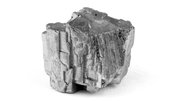Blog
Is there a better way than big retail?
June 6, 2011 by Kurt Myrick — Technical Engineer, Phoenix Kiosk
Not only do big retail box stores leave one heck of an eco footprint, they also come with an enormous price tag. Commercial rental, initial construction costs, staffing, energy consumption and more all get factored into the money-making equation. And while large retail spaces certainly have their places in the retail scene, they are not always necessary.
While redbox may be the first name that comes to mind for many shoppers outside the self-service kiosk industry, marketing insiders know that a number of big brands have been making big money – with fewer overhead costs – using retail kiosks while other long-time players are simply crying uncle and packing up shop. Best Buy, Rosetta Stone, Macy's and Sony are all names you may have started to notice using point-of-need sales kiosks to meet customer demands. Here are a few points to ponder:
Powerful product placement at traditionally out-of-financial-reach retail locations
Whether it's business travelers needing data storage and a spare cell phone charger or a teen flying to see Grandma, who just broke his tune headset, travelers need support infrastructure. While full retail space at major airports might be out of financial reach, kiosk placement is much more affordable and can be gateside as opposed to a mile away on the other side of the concourse. Malls are another venue where retail kiosks can provide an excellent ROI without a huge outlay of cash.
A foot in the door where there's no door available
If there's a prime location with absolutely no office space available, then a self-service kiosk isn't just a more affordable option, it's likely your only option. This can occur when other chain stores have rented all available units, or when there simply aren't units to be had, such as at a hospital or public park. If you've got a brand people trust, you're halfway to the sale already, my friend. For the same reason people will key in their credit card numbers for an online Amazon purchase over a retail site they've never heard of, seeing a Best Buy or Radio Shack logo when they are searching for electronics equipment before their train departs provides them with a level of confidence they might not have with a machine from an unknown company.
Less legwork
With systems like Phoenix Kiosk'sVIGIX automated retail kiosk, which allow inventory stocking through UPS and DHL, and provide automated online alerts for low-product supply, business owners have the ability to go big without going crazy outsourcing to a small army of contractors whose business practices of which ther are unfamiliar.
Carbon footprint
If you ask me, there's no debate between a big store and a small kiosk that takes up a fraction of the space, uses less energy but still produces equal profits. For smaller retail locations, a kiosk may marry profit and ecological protection in a way we can only just begin to imagine.
 ChatGPT
ChatGPT Grok
Grok Perplexity
Perplexity Claude
Claude










